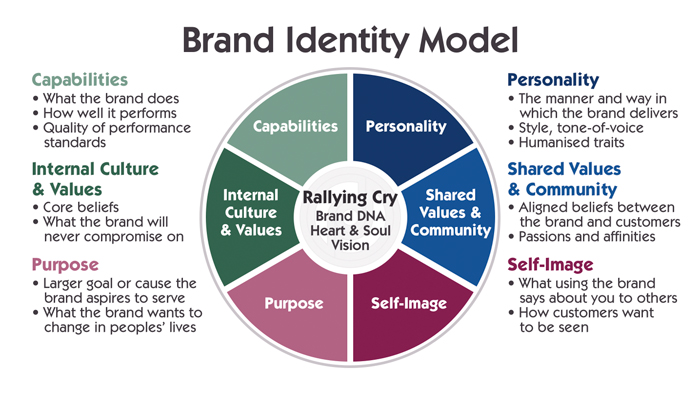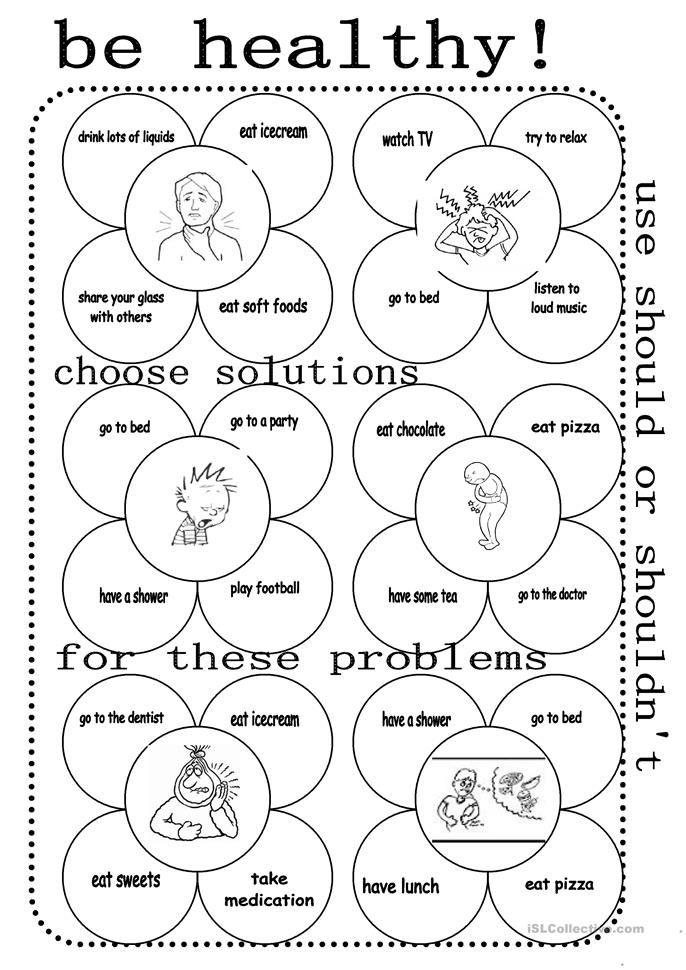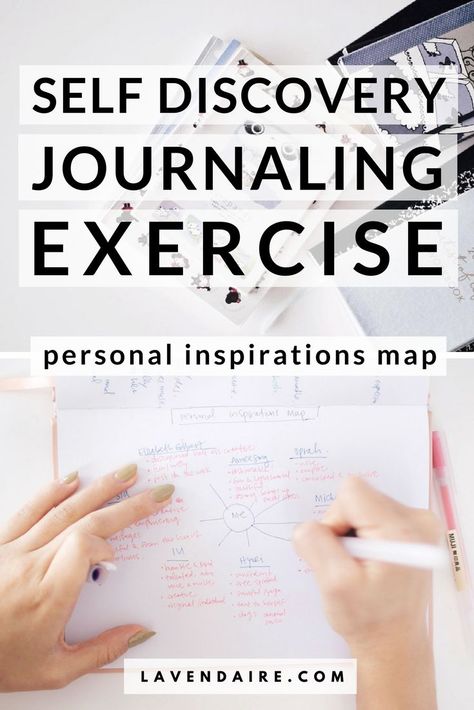Does anxiety go away on its own
Does Anxiety Go Away on Its Own?
Anxiety can feel relentless at times. It can come out of nowhere and linger far past its welcome. It makes you wonder, “Does anxiety ever just go away?”
For most people, anxiety is not a feeling that disappears on its own. But that doesn’t mean you have to suffer with it forever. Read on to learn how you can control your anxiety in any situation.
Anxiety vs. Anxiety Disorder
Before we discuss anxiety treatment and the prevalence of anxiety as a whole, we need to make an important point. There is a big difference between anxiety and anxiety disorder. Most people experience anxiety at some point in their lives. A job interview, a first date, or an important stage performance are all potential causes of anxiety. The symptoms are temporary though, and they usually go away once the event is over.
General anxiety disorder and other anxiety disorders involve a much more persistent form of anxiety. The symptoms occur frequently, sometimes without any trigger at all. If there is a noticeable trigger, the anxiety may still last much longer than the scenario that sparked the feelings. In other words, you may feel anxious after you logically should feel anxious.
The first type of anxiety will go away on its own. The second may not. Most people with anxiety disorders never fully eliminate their anxiety. However, they can learn how to control their feelings and greatly reduce the severity of their anxiety through therapy (and medication if needed).
You Can Control Anxiety Even If It Doesn’t Go Away
Hoping that your anxiety will go away isn’t treating the problem. In fact, leaving it alone may make matters worse. With an anxiety treatment program though, you can take control of that area of your life. You will…
- Pinpoint the cause of your anxiety
- Identify anxiety triggers
- Understand your thoughts, feelings, and emotions – learn about your anxiety inside and out
- Learn how to control your anxiety in real time
- Learn how to stop panic attacks and prevent them in the future
- Reduce the frequency and severity of your anxiety
- …and much more
Oakland Psychological Clinic has several anxiety therapists in Michigan. These counselors specialize in anxiety treatment. They will customize your treatment program to fit your needs and your personality. If you are interested in anxiety treatment or want to know more about how it works, contact one of our Michigan therapist offices.
These counselors specialize in anxiety treatment. They will customize your treatment program to fit your needs and your personality. If you are interested in anxiety treatment or want to know more about how it works, contact one of our Michigan therapist offices.
Back
Bloomfield Hills, MI: (248) 322-0001
Flint, MI: (810) 732-0560
Fraser, MI: (586) 294-3030
Grand Blanc, MI: (810) 695-0055
Lake Orion, MI: (248) 393-5555
Livonia, MI: (734) 522-0280
Milford, MI: (248) 684-6400
Southfield, MI: (248) 559-5558
Schedule an Appointment Today
Please contact the clinic directly to cancel/reschedule appointments
Anxiety and Anxiety Disorders: Is There a Cure?
Anxiety is the body’s natural response to stress, perceived threats, and fear. Anxiety usually goes away once the threat or stressor passes and your system calms down.
However, if you have an anxiety disorder, anxiety can linger beyond the triggering event and become out of proportion. Chronic (long-term) or severe anxiety can seriously impair your daily functioning.
While you can’t banish anxiety altogether, anxiety and anxiety disorders can be treated and managed.
We’ll go over what distinguishes anxiety disorders from standard anxiety, risk factors, treatment options, and more.
A person’s tendency toward anxiety is determined by several factors, including their genetic makeup, life experiences, environment, and more.
Since it’s a natural part of the human condition, anxiety is not completely curable. But feeling anxious should be a temporary state that resolves when a stressor or trigger has passed.
Anxiety is bound to make an appearance sometimes, such as when you’re giving a big presentation at work or when you have an acute health issue.
Anxiety disorders, on the other hand, are different from average feelings of anxiety. Anxiety disorders are marked by excessive, prolonged worrying. You might feel overwhelmed easily and be unable to stop feeling anxious.
Anxiety disorders are marked by excessive, prolonged worrying. You might feel overwhelmed easily and be unable to stop feeling anxious.
If left untreated, anxiety disorders can worsen over time and negatively impact your quality of life.
This might look like:
- avoiding personal or professional obligations
- isolating yourself or not wanting to go out
- becoming depressed
- lower self-esteem
- having panic attacks
It’s important to recognize when anxiety has too much control over you and to seek help. There are ways to manage anxiety and keep it from running your life.
Anxiety is an emotional state that involves feelings of worry, apprehension, and stress. As the American Psychiatric Association explains, anxiety usually involves being concerned about something happening in the future. This could be a specific event or an abstract fear.
When you’re anxious, you can also have temporary physical symptoms, such as an increased heart rate and sweating.
Anxiety is also a state of high alert when there’s a perceived threat or possibility of a threat. It serves an evolutionary purpose to keep us alert to danger and looking out for our self-preservation.
If your anxiety starts acting up all the time, it can make small stresses and situations feel like life or death. This can negatively affect your quality of life and may indicate an anxiety disorder.
Types of anxiety disorders include:
- generalized anxiety disorder (GAD)
- separation anxiety disorder
- social anxiety disorder (fear of going out, talking with people, socializing)
- panic disorder (recurrent panic attacks)
- phobias (fear of certain things or situations)
People with post-traumatic stress disorder (PTSD) and obsessive-compulsive disorder may also experience anxiety symptoms. These used to be classified as anxiety disorders but are now separate in the Diagnostic and Statistical Manual of Mental Disorders, 5th edition (DSM-5). The DSM-5 is the major resource used by healthcare professionals to diagnose mental health conditions.
The DSM-5 is the major resource used by healthcare professionals to diagnose mental health conditions.
People with other types of mental health conditions, such as borderline personality disorder (BPD) and schizophrenia, may also experience anxiety more frequently than the average person.
Anxiety disorders or anxiety caused by other mental health conditions can cause significant problems in daily life. They can impact your relationships and performance at work or school.
Some risk factors for developing an anxiety disorder or a related condition include:
- exposure to significant stressful and negative events
- family history of anxiety or other mental health conditions
- health conditions such as thyroid problems or heart arrhythmia
- having a highly sensitive personality
- a tendency to be shy
Key statistics
Did you know anxiety disorders are the most common type of mental health disorder?
The National Comorbidity Study Replication (NCS-R) was conducted from 2001 to 2003.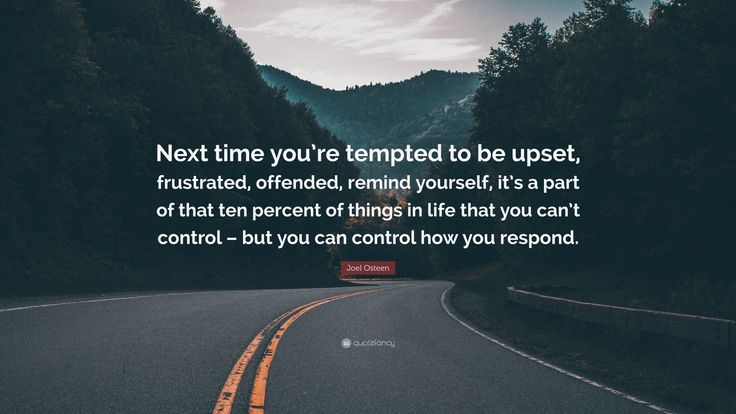 It is the largest representative survey of mental health conditions in the United States. The NCS-R categorized participants by their sex assigned at birth.
It is the largest representative survey of mental health conditions in the United States. The NCS-R categorized participants by their sex assigned at birth.
The survey found:
- Over 19 percent of U.S. adults had experienced an anxiety disorder in the past year.
- Over 31 percent will experience an anxiety disorder at some point in their lives.
- Prevalence of anxiety disorders was higher in female people and people assigned female at birth.
Anxiety is treated by psychologists, psychiatrists, and other mental health professionals.
Anxiety disorders sometimes coexist with other conditions (comorbidities), such as depression or substance use disorder. When seeking care for your anxiety, it’s important to also address any other mental health conditions.
The following are common treatment options for anxiety. Many of these have been around for a while and are associated with significant improvements in quality of life.
Talk therapy
Psychotherapy, or talk therapy, involves one-on-one sessions with a therapist.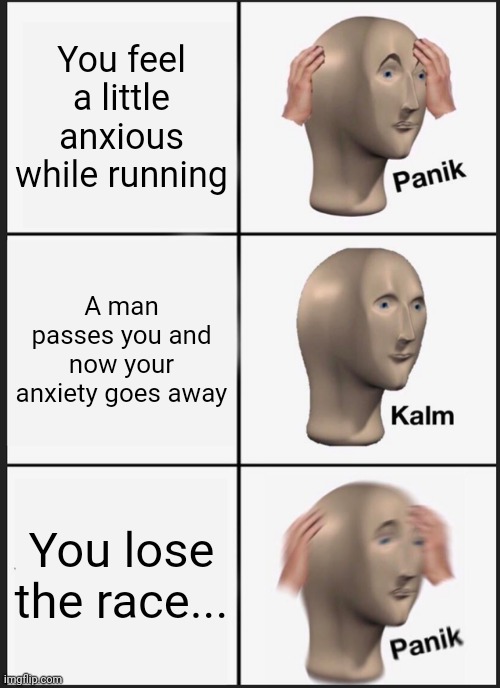 You might meet with your therapist weekly, or more or less frequently, depending on your individual situation.
You might meet with your therapist weekly, or more or less frequently, depending on your individual situation.
Talk therapy is an umbrella term. Common forms of talk therapy include:
- cognitive behavioral therapy (CBT)
- dialectical behavior therapy (DBT)
- acceptance and commitment therapy (ACT)
- interpersonal therapy
- family or couples therapy
During talk therapy, you can speak openly about your anxieties and other concerns. Your therapist can help you identify problems and work on strategies to overcome them.
Therapy can be a safe, judgment-free space to share whatever is troubling you and be yourself. Your therapist can also provide you with resources about other mental health treatment options.
We’ll overview two kinds of talk therapy commonly used for treating anxiety disorders: CBT and DBT.
Cognitive behavioral therapy
CBT has been found to be effective in treating several types of anxiety disorders, including those linked to depression, phobias, and obsessive compulsive disorder (OCD). CBT is also associated with improved quality of life in people with anxiety.
CBT is also associated with improved quality of life in people with anxiety.
Here’s how it works:
- CBT is based on the idea that thoughts, feelings, and behaviors are related. This form of therapy aims to help you change your thought and behavior patterns in a way that will be beneficial to you.
- Usually, you and your therapist will agree on a number of sessions to help organize your treatment plan and structure goals.
- CBT sessions will focus on specific problems and changing the way you think about and deal with them. You practice with your therapist and on your own in between sessions.
One common method of treating anxiety disorders is a type of CBT called exposure therapy. This involves identifying the things that cause anxiety and then, in a safe and controlled setting, systematically exposing yourself to them. This could be virtual or in real life.
Exposure therapy may also involve learning relaxation techniques, a form of exposure therapy called systematic desensitization.
As you’re exposed to a stressful or feared situation in a safe setting, you begin to feel less anxious about it. This helps you manage a situation better next time it happens so anxiety is no longer running the show.
Dialectical behavior therapy
DBT is an increasingly popular therapy for people with certain mental health conditions that can cause anxiety.
Similar to CBT, the focus of DBT is behavioral change. However, DBT provides additional focus on the development of coping skills and thinking patterns that can help regulate mood, emotions, and relationships. The idea is to tap into these coping skills when you feel anxious or in other distress.
DBT programs are intensive and require a mix of one-on-one and group therapy sessions that meet weekly for several months.
For these reasons, DBT may be most helpful for those whose anxiety is severe and caused by serious mental health conditions such as borderline personality disorder (BPD), eating disorders, and substance use disorders.
Getting the help you deserve
Making the decision to start therapy can be difficult and confusing. There’s still stigma attached to talking about mental health, and it can be hard to learn how to navigate the system and find care.
You deserve care and support!
Here are some resources to help answer questions and offer guidance:
- 9 Tips for Finding the Right Therapist
- How to Choose a Counselor vs. Therapist
- Therapy for Every Budget: How to Access It
Medications
When talk therapy or behavioral therapy is not enough to manage your anxiety, your doctor may talk with you about the possibility of taking anti-anxiety medications. Sometimes this category of medications is called anxiolytics.
Anti-anxiety medications can also be prescribed by a psychiatrist.
Common types include:
- benzodiazepines
- serotonin-norepinephrine reuptake inhibitors (SNRIs)
- selective serotonin reuptake inhibitors (SSRIs)
- tricyclic antidepressants
When prescribed for anxiety, medications are typically combined with some type of talk therapy.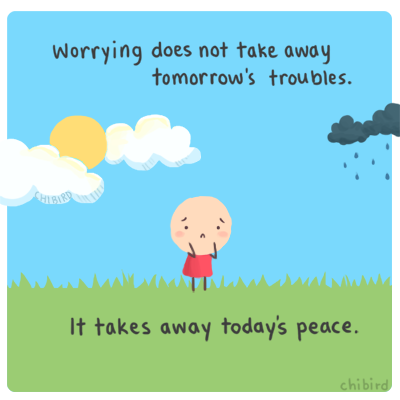
Benzodiazepines are typically prescribed to be taken as needed. These medications are fast-acting, and have risk of addiction. Antidepressants, including both SNRIs and SSRIs, are for daily or chronic use, and can take time to achieve a therapeutic effect. Tricyclics are also used to treat OCD.
Anxiety medications can have side effects and should always be taken as directed by your doctor. It may take more than one try to find the right medication for you.
Even if you’ve learned how to manage anxiety, it’s a safe bet that you’ll experience some level of anxiety again in your lifetime.
Anxiety may crop up in response to events such as:
- financial issues
- work stress, including in a new job
- trouble with interpersonal relationships
- fear of being alone
- dealing with serious health issues
- loss of a loved one
- major life changes, such as marriage or a move
Your anxiety level is likely to fluctuate throughout your life, depending on what’s happening or what’s on your mind.
Remember — anxiety is not inherently bad. It can help us be prepared for whatever comes our way. But when you’re feeling anxious all the time and feel unable to calm down, this is a cause for concern.
Chronic anxiety that is out of proportion to the stressor or situation may signify an anxiety disorder.
When you feel anxious, it may help to acknowledge the fact that you’re anxious. If you can, try and take a step back and consider the situation. Identifying who or what is making you anxious can be a useful coping tool.
During times of stress and alarm, it can help to remember that your feelings of anxiety should pass once the stressful event is over.
Here are a few things you can do to help lower your anxiety in the moment:
- Reach out to someone you trust for support. Sometimes, talking things through can help you gain calm and relieve anxious thoughts.
- Set boundaries. Try to practice saying no to work or personal requests if you have too much on your plate.
- Practice activities that might help calm or center you:
- meditation
- yoga
- deep breathing
- going for a walk
- your favorite kind of exercise
- Do something that helps you relax physically:
- soaking in a warm bath
- playing soothing music
- enjoying aromatherapy
- watching your favorite TV show or movie
- If you practice CBT or DBT, try tapping into some of your distress coping tools, and try to mindfully redirect your behavior or attention.
Here’s an introductory overview of some things you can do to help reduce anxiety in the long term.
Get regular exercise
The World Health Organization (WHO) recommends at least 150 minutes of moderate exercise a week for most adults.
A 2019 study found that this amount of exercise can reduce symptoms of anxiety and depression.
Practice mindfulness and meditation
Being mindful means stepping back, tuning out the unimportant, and paying attention to what’s happening in the moment. Mindfulness involves tuning into your surroundings and what’s going on inside you.
Meditation is the practice of training your mind to redirect your thoughts and channel your focus and awareness.
There are many types of meditation, and all of them require some practice. Many resources are readily available to help you get started.
Consider downloading a meditation app or taking a meditation class to help you learn. The techniques you learn in meditation can come in handy when coping with a stressful situation.
Practicing meditation is associated with multiple health benefits, including improved sleep and lower stress.
Get plenty of sleep
Getting enough restful sleep is essential to your overall health and well-being. For adults, 7 to 8 hours of sleep a night is ideal.
2020 research connects lack of sleep with elevated daytime anxiety. The National Institutes of Health (NIH) reports there are many other adverse effects, too:
- In children, hyperactivity can occur.
- In adults, feeling cranky, exhausted, and moody is common.
- Both children and adults may experience trouble focusing.
Some people have insomnia and are chronically under-sleeping, or have health conditions that affect sleep.
Here are some tips and resources for prioritizing a good night’s sleep:
- Tools and Tricks to Calm Your Anxiety and (Finally) Get Some Sleep
- 10 Reasons to Get More Sleep
- 10 Healthy Sleep Hygiene Habits
Eat well
A varied and nutritious diet is one of the most important things you can do for your physical and mental health. This includes avoiding foods you are allergic or sensitive to, which cause inflammation in your body.
Always reach out to a dietitian, nutritionist, or your primary care doctor before making substantial dietary changes.
Limiting intake of certain foods is also important to reducing the risk of health conditions like heart disease and diabetes. It can help make sure you maintain healthy energy levels and get all the nutrients your body needs to function.
Try to consume the following in moderation:
- sugar
- alcohol
- caffeine
- sodium
The MyPlate resource from the United States Department of Agriculture (USDA) can help you assess your current diet and identify which foods to include.
Certain foods have been associated with helping reduce anxiety and other mental health issues. These foods include:
- green tea
- dark chocolate
- salmon
- yogurt
Stay socially engaged and get support
Prioritize maintaining a strong social network. This could look like a small group of close, trusted friends or a wider net. Social interactions can distract you from your own stressors and give you someone to turn to when you need to talk.
Spending time with friends and family who you feel safe and comfortable around can help limit social anxiety. It can also provide a safe space to share feelings and stresses to prevent them from building up inside you.
You might also find it helpful to connect with others who are dealing with anxiety. You’re not limited to in-person connection, either. You can reach out online, on the phone, or through video chat.
Resources for anxietyIf you’re dealing with anxiety, you’re not alone. These organizations offer resources that can help:
- Anxiety & Depression Association of America
- Mental Health America
- The Tribe Wellness Community
There are many ways to treat anxiety that exist outside traditional medicine. These may not work for everyone, and not all of them are backed with research. However, it can be empowering to explore your options, and you might just discover a new approach that helps.
Acupuncture
Use of acupuncture to help anxiety is growing in popularity. Acupuncture is an ancient Chinese therapy tracedback thousands of years.
During an acupuncture session, a practitioner will insert tiny, thin needles into pressure points on your body. Putting pressure on these points is thought to balance the body’s systems, reducing pain and stress.
2018 research suggests acupuncture may be a safe and effective alternative way to alleviate anxiety. However, experts agree more research is needed to determine its efficacy.
Massage
Massage is the practice of using hands, pressure, and touch to ease pain and stress in the body. There are many types of massage, and often a license is required to operate as a masseuse.
Popular types of massage are:
- Swedish massage
- shiatsu massage
- sports massage
- trigger point therapy
2014 research on patients who have undergone heart surgery suggests massage is an effective way to significantly reduce health-related anxiety.
Animal-assisted therapy
Animal-assisted (pet) therapy is a type of therapy that incorporates the human-animal bond into a person’s mental health treatment plan. Increasingly, animal-assisted therapy is offered by mental health practitioners.
Common therapy animals include:
- dogs
- cats
- horses
- pigs
During animal-assisted therapy, you may be paired up with a dog, cat, horse, pig, or other animal. You may interact with this animal during therapy sessions, or you may receive a recommendation for a service animal, such as one used for emotional or medical support.
Researchers have found numerous benefits of animal-assisted therapy, such as:
- feeling less alone
- feeling more comfortable in social situations
- higher self-esteem
- lower overall feelings of anxiety
Light therapy
Getting enough sunlight, which contains vitamin D, is important to your overall health.
Lack of proper sunlight is associated with many adverse health effects, which can in turn affect stress and anxiety levels. Associated conditions include:
- type 1 diabetes
- hypertension (high blood pressure)
- certain types of cancer
- asthma
- Alzheimer‘s disease
Prioritizing getting enough sunlight can boost your mood and energy, which can reduce anxious feelings. When getting sunlight, be sure to wear adequate sun protection, including sunscreen and sunglasses.
Artificial light therapies are increasingly common and have been associated with numerous health benefits. However, some still remain controversial, and not all experts agree they work.
Light therapy may involve different colored beams (often red or blue) and is organized into timed sessions.
Various light therapies target:
- depression
- moods
- migraine
- skin problems
- wound healing
A 2018 study of 58 epilepsy patients found daily light therapy was useful for reducing their anxiety and depression.
Music therapy
For many people, music therapy may be a helpful way to alleviate or prevent feelings of anxiety. Throughout human history, music has been used to soothe, energize, and inspire.
Music therapists are experts in teaching people how to use music to benefit their mental health.
Music therapy can look like:
- listening to music on your own
- working with a music therapist in individual sessions toward specific goals
- learning a new instrument, playing or composing music
Listening to music has been shown to have several benefits for your health, including:
- lowering heart rate
- helping with sleep
- pain relief
- reducing anxiety
- lowering cortisol levels
- improving mental health
Though the following natural remedies have been linked to diminished anxiety in some studies, more research is needed to prove a definitive helpful connection. However, many home remedies for anxiety and mood disorders have long been popular and have a lot of anecdotal support.
It’s important to consult a doctor before starting any of the following natural remedies, especially if you have preexisting health conditions or are on medication. Natural remedies for anxiety include:
- CBD (comes in various forms)
- chamomile (including tea and oil)
- magnesium
- valerian root
- lemon balm
Everyone experiences anxiety at one time or another. Anxiety usually goes away once the triggering event is over, but it may reoccur depending on your life circumstances.
An anxiety disorder can become a long-term condition. If left untreated, anxiety disorders can worsen and substantially disrupt your life. Anxiety has been linked to an increased incidence of depression and substance use disorders, among other health complications.
While you may not be able to banish anxiety forever from your life, anxiety disorders can be treated and managed with traditional and alternative therapies.
These include:
- behavioral therapies
- talk therapy
- medication
- lifestyle changes
Not all treatment options will work for everyone, and you may have to explore a few to find one that’s right for you.
You don’t have to deal with anxiety alone. If your anxiety feels overwhelming or unmanageable, reach out to a healthcare or mental health professional for help. You don’t have to handle anxiety on your own, and you deserve care and support.
Anxiety disorder | The CALDA Clinic
Treatment Options: Anxiety Disorder
Everyone Knows Fear! It is an unpleasant, but fundamentally natural emotional state that occurs in dangerous situations and has an important protective function. Fear can manifest itself in varying degrees. We regularly meet with him in everyday life. For example, as an unpleasant pulling sensation in the stomach on the edge of the abyss or "jitters" before an important meeting. These concerns are understandable and completely normal. nine0007
When Fear Is a Disease
Fear becomes a problem when it occurs with inadequate force in situations that – when viewed objectively – do not really pose a threat at all. An anxiety disorder is said to be when fear takes over, dominates a person's daily life and thereby limits the quality of his life.
Anxiety disorders are very complex
Anxiety disorders always occur at several levels of the body:
- On an emotional level in the form of helplessness, loss of control, panic, fear of death, etc.
- On the physical level with symptoms such as dizziness, nausea, shortness of breath, palpitations and sweating.
- At the behavioral level in the form of self-isolation, flight or numbness.
Almost one in four people will experience an anxiety disorder at some point in their lives
After depression, anxiety disorders are among the most common mental illnesses. According to the German statistics portal Statista 1) , about 25 percent of all people have suffered from an anxiety disorder at least once in their lives. Women suffer from it about twice as often as men. Anxiety disorder can occur alone or together with depression, obsessive-compulsive disorder, or addictive disorder. There are different forms of anxiety disorders. Most common:
1) https://de.statista.com/statistik/daten/studie/182616/umfrage/haeufigkeit-von-angststoerungen/
Important features
- panic disorder;
- generalized anxiety disorder;
- Phobias are also considered anxiety disorders. You can read more about this disease here; in addition, here you can find information about our CALDA Specific Phobia program, which has been specially designed for the treatment of phobias.
What is panic disorder? nine0005
Panic disorder is characterized by massive paroxysmal anxiety attacks that can last from a few minutes to, in extreme cases, several hours. In most cases, the attack intensifies to a maximum in the first ten minutes and disappears in about half an hour. Such panic attacks can occur with varying frequency - for example, once every two months or several times a day, but then disappear for weeks. There are certain situations, or triggers, that can trigger panic attacks in patients. At the same time, panic attacks can occur for no apparent reason - almost "out of the blue." nine0007
What are the symptoms of a panic attack?
Panic attacks are characterized by massive paroxysmal psychological and physical symptoms similar to seizures, such as
- fear of death,
- shortness of breath,
- loss of self control,
- fainting with severe dizziness and "soft knees",
- fear of going crazy,
- palpitations and palpitations,
- arrhythmia,
- sweating,
- chills,
- nausea,
- shiver,
- numbness and tingling,
- blurred vision,
- feeling of pressure and pain in the chest.
Panic disorder: impact on daily life
Fear of another panic attack can lead to severe behavioral changes in which patients avoid certain situations, such as public places, flights or crowds, and try not to leave their familiar environment. Panic disorders often occur in connection with agoraphobia. Fear of another test of fear can turn into a downright vicious circle and significantly limit the range of movement and freedom of action of the patient. Because of this, addictions often develop as patients try to alleviate the resulting attacks with alcohol or pills. nine0007
What is Generalized Anxiety Disorder?
In generalized anxiety disorder, people have persistent excessive worries and fears that are not related to a specific situation. Patients are usually afraid of events such as accidents, catastrophes, serious illnesses, job loss, etc., which may affect themselves or their relatives, although there is no obvious or predictable reason for this. Since patients are often aware that they are overly frightened, general fears that have already become commonplace are often added to fears about their own fears. Everyday life and attitude to life is characterized by constant reflection and experience. Constant fear of all possible troubles and tension also manifest themselves in a number of pronounced physical symptoms. nine0007
What are the symptoms of generalized anxiety disorder?
Generalized Anxiety Disorders are characterized by various psychological and physical symptoms that appear over fairly long periods, at least six months:
- irritability;
- nervousness;
- constant thinking about possible dangers;
- trouble falling asleep;
- problems with concentration; nine0024
- muscle tension;
- headache;
- dry mouth;
- fatigue;
- palpitations;
- dizziness.
Generalized Anxiety Disorder: Anxiety in Daily Life
Unlike panic attacks, generalized anxiety disorders do not come on as attacks, but last throughout the day. Without treatment, initially episodic and intermittent symptoms can become chronic. This can lead to the fact that experiences become increasingly difficult to control, and at some point, patients can no longer cope with their daily lives, let alone continue their work. Psychiatric comorbidities such as depression, obsessive-compulsive disorder, or addictions can occur in connection with generalized anxiety disorder. nine0007
Can an anxiety disorder go away on its own?
An anxiety disorder usually does not go away on its own. If severe anxiety disorder is not treated, it can become chronic and get worse over time. The reason is that in the presence of anxiety disorders, fear literally takes on a life of its own. At the same time, fear of expectation, that is, “fear of fear”, often develops. This leads to a vicious circle that continues to "feed" the disease and from which patients often cannot find a way out on their own. nine0007
Can anxiety disorders be cured?
Anxiety disorders are usually easy to treat, especially if they are detected early. Unfortunately, non-specific fears often go unnoticed for too long or are misdiagnosed. Patients often do not see a doctor about their anxiety disorder, or are examined only on the basis of physical symptoms. As a result, studies have shown that the correct diagnosis of anxiety disorder is delayed by an average of ten years. nine0007
The causes of anxiety disorders are complex
Anxiety disorders result from the interaction and influence of various factors:
- On the one hand, it is assumed that genetic factors, that is, heredity, play a role.
- But the methods of upbringing also have an influence.
- And the methods used to deal with fears.
- In addition, traumatic and frightening events in childhood, such as physical and emotional abuse, may contribute in part to the development of anxiety disorders. nine0024
- Or prolonged and debilitating stress that may occur in later life.
- Another important trigger for anxiety disorders are disturbances in certain neurobiological processes in the body.
The reason is that for the stimulus-response scheme to work, that is, the emergence, control and regression of fear, an exchange of information between the nerve cells of the brain is necessary. This is realized with the help of various neurotransmitters. If they are not balanced with each other, this can also increase the tendency to anxiety disorders. nine0024
What treatments are available for anxiety disorders?
Thus, effective treatments for anxiety disorders involve approaches at many different levels, since psychological, physical and social aspects can play a role in the development of this disease. However, traditional therapies have mainly focused on psychotherapeutic practices and the use of psychotropic drugs.
Everything is different with us! nine0003
The CALDA concept: we have our own treatment!
With the CALDA concept, you will receive individual and highly effective precision therapy based on a holistic principle. We work, focusing on the solution of several disciplines working at different levels. Thus, outstanding results can be achieved in a short period of time.
CALDA concept
Our motto and guarantee:
we treat the causes, not the symptoms!
If possible, we work without psychotropic drugs!
Our time and all our know-how are exclusive services for a specific client.
Our 1:1 CALDA therapy is holistic, meaning that we treat with evidence-based classical medicine combined with specially proven complementary, traditional Chinese (TCM) and orthomolecular medicine therapies. nine0007
The CALDA concept: Comprehensive diagnostics at its core
We focus on our wide-ranging and in-depth diagnostics, which allows us to identify disease relationships that may not be visible with other approaches.
Here you can get detailed information about the essence and benefits of the CALDA concept, as well as about the various programs of the CALDA concept.
If you have anxiety disorders, we recommend that you complete the full CALDA program.
Anxiety sufferers will benefit from a patient guide
June 10, 2016
The aim of the Patient Guides is to help people cope more successfully with various illnesses, provide answers to more common questions about treatment and daily life, and support those in need of help in the treatment process. The guidelines were compiled by nurses who come into daily contact with various anxiety conditions in their work, and in compiling the patient manual, they proceeded from the used treatment manual for the same disease condition that is intended for health care workers. The Patient's Guide considers recommendations from the patient's point of view and contains information that the patient or family members need to know about the nature of the disease, organization of daily life, and treatment. The doctor also tells the patient about everything in the manual during his visit, but often in the abundance of new information, the knowledge gained can be forgotten upon arrival home. Management can answer questions if a doctor is not nearby. nine0007
Healthy anxiety turns into an anxiety disorder when it interferes with daily life
Nowadays, anxiety is an inevitable part of life. There are often situations in everyday life when it is reasonable to feel a certain amount of anxiety. If a person did not experience any anxiety in any situation that could be dangerous or lead to failure (for example, an exam), something would be wrong. Anxiety becomes an anxiety disorder when it starts to interfere with daily life. An anxiety disorder differs from ordinary, normal anxiety in that the accompanying anxiety is very strong or lasts longer—it can last for many months and does not subside after the stressful environment has passed. This can lead to phobias that interfere with a person's life. For example, people are unable to sleep due to anxious thoughts, or begin to completely avoid anxiety-producing routine situations (going to school or work, eating). Such ordinary situations are interpreted in this state as more dangerous than they really are. nine0007
Generalized anxiety disorder is characterized by persistent, chronic anxiety, restlessness and feelings of tension. It lasts at least six months, but is not accompanied by panic attacks, phobias, or obsessions. Anxiety and worry tend to focus on a few stressful circumstances in life (eg, financial situation, relationships, success in school/work, etc.). It is characteristic of the disorder that a person has many worries, most of the time he spends in anxiety and cannot keep anxiety under control. The power of anxiety is greater than the likelihood that dangerous events will actually occur. nine0007
In addition to constant anxiety, there are also many additional symptoms in the case of generalized anxiety. For example, restlessness, easily occurring weakness, difficulty concentrating, extra tension, sleep disturbances, irritability. Generalized anxiety disorder can occur at any age and its exact causes are not known. It is likely that both heredity and childhood experiences that contribute to anxiety disorder (contempt, rejection, and excessive expectations of parents) influence its occurrence. nine0007
Patient Guidelines are prepared in both print and web versions. The patient receives the publication either from a family doctor or from a medical specialist. The guides are also distributed by the relevant societies representing patients. The web version of the patient manual is available to everyone at www.ravijuhend.ee.
Anxiety treatment starts with a family doctor
Anxiety treatment starts with a conversation with a family doctor and family nurse. During the conversation, they find out the nature of your anxiety disorder and the factors that exacerbate and alleviate it. They also recommend ways of self-help, inform about the possibilities of treatment and recovery, about the course of the disease and signs of re-exacerbation. There are several options for treating anxiety disorders - self-help, psychotherapy, and medication.
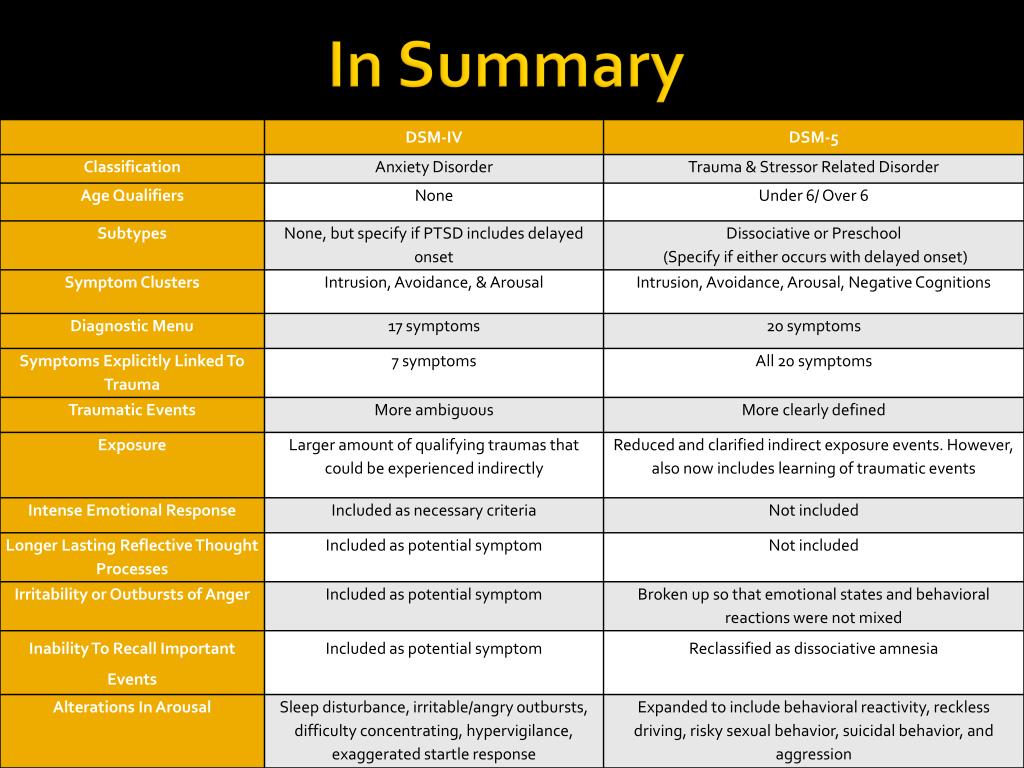

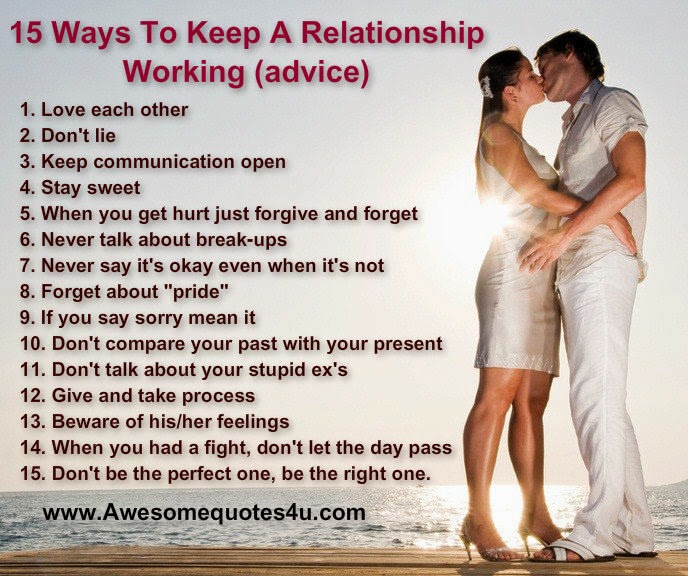.jpg)

